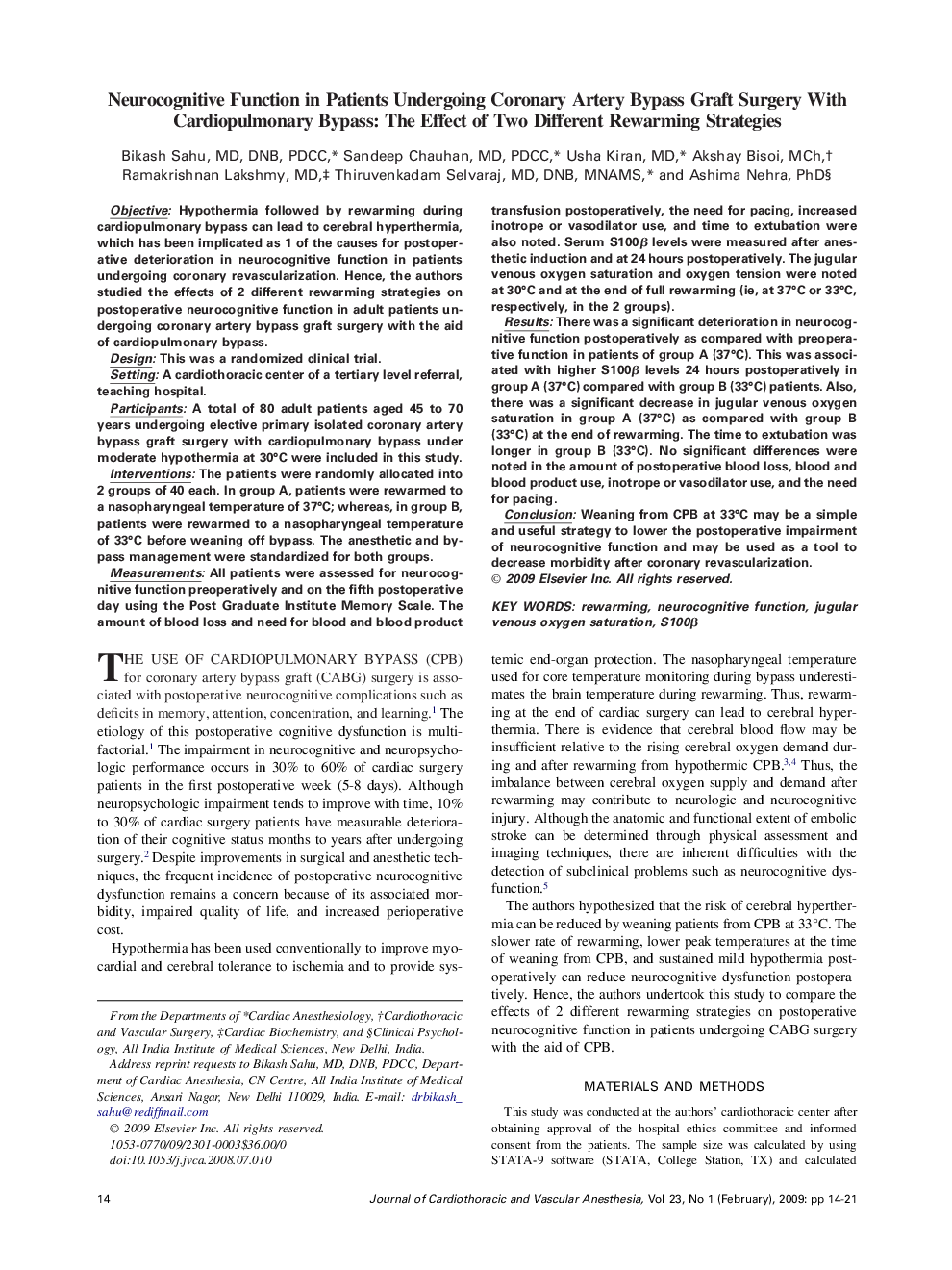| کد مقاله | کد نشریه | سال انتشار | مقاله انگلیسی | نسخه تمام متن |
|---|---|---|---|---|
| 2760921 | 1150184 | 2009 | 8 صفحه PDF | دانلود رایگان |

ObjectiveHypothermia followed by rewarming during cardiopulmonary bypass can lead to cerebral hyperthermia, which has been implicated as 1 of the causes for postoperative deterioration in neurocognitive function in patients undergoing coronary revascularization. Hence, the authors studied the effects of 2 different rewarming strategies on postoperative neurocognitive function in adult patients undergoing coronary artery bypass graft surgery with the aid of cardiopulmonary bypass.DesignThis was a randomized clinical trial.SettingA cardiothoracic center of a tertiary level referral, teaching hospital.ParticipantsA total of 80 adult patients aged 45 to 70 years undergoing elective primary isolated coronary artery bypass graft surgery with cardiopulmonary bypass under moderate hypothermia at 30°C were included in this study.InterventionsThe patients were randomly allocated into 2 groups of 40 each. In group A, patients were rewarmed to a nasopharyngeal temperature of 37°C; whereas, in group B, patients were rewarmed to a nasopharyngeal temperature of 33°C before weaning off bypass. The anesthetic and bypass management were standardized for both groups.MeasurementsAll patients were assessed for neurocognitive function preoperatively and on the fifth postoperative day using the Post Graduate Institute Memory Scale. The amount of blood loss and need for blood and blood product transfusion postoperatively, the need for pacing, increased inotrope or vasodilator use, and time to extubation were also noted. Serum S100β levels were measured after anesthetic induction and at 24 hours postoperatively. The jugular venous oxygen saturation and oxygen tension were noted at 30°C and at the end of full rewarming (ie, at 37°C or 33°C, respectively, in the 2 groups).ResultsThere was a significant deterioration in neurocognitive function postoperatively as compared with preoperative function in patients of group A (37°C). This was associated with higher S100β levels 24 hours postoperatively in group A (37°C) compared with group B (33°C) patients. Also, there was a significant decrease in jugular venous oxygen saturation in group A (37°C) as compared with group B (33°C) at the end of rewarming. The time to extubation was longer in group B (33°C). No significant differences were noted in the amount of postoperative blood loss, blood and blood product use, inotrope or vasodilator use, and the need for pacing.ConclusionWeaning from CPB at 33°C may be a simple and useful strategy to lower the postoperative impairment of neurocognitive function and may be used as a tool to decrease morbidity after coronary revascularization.
Journal: Journal of Cardiothoracic and Vascular Anesthesia - Volume 23, Issue 1, February 2009, Pages 14–21